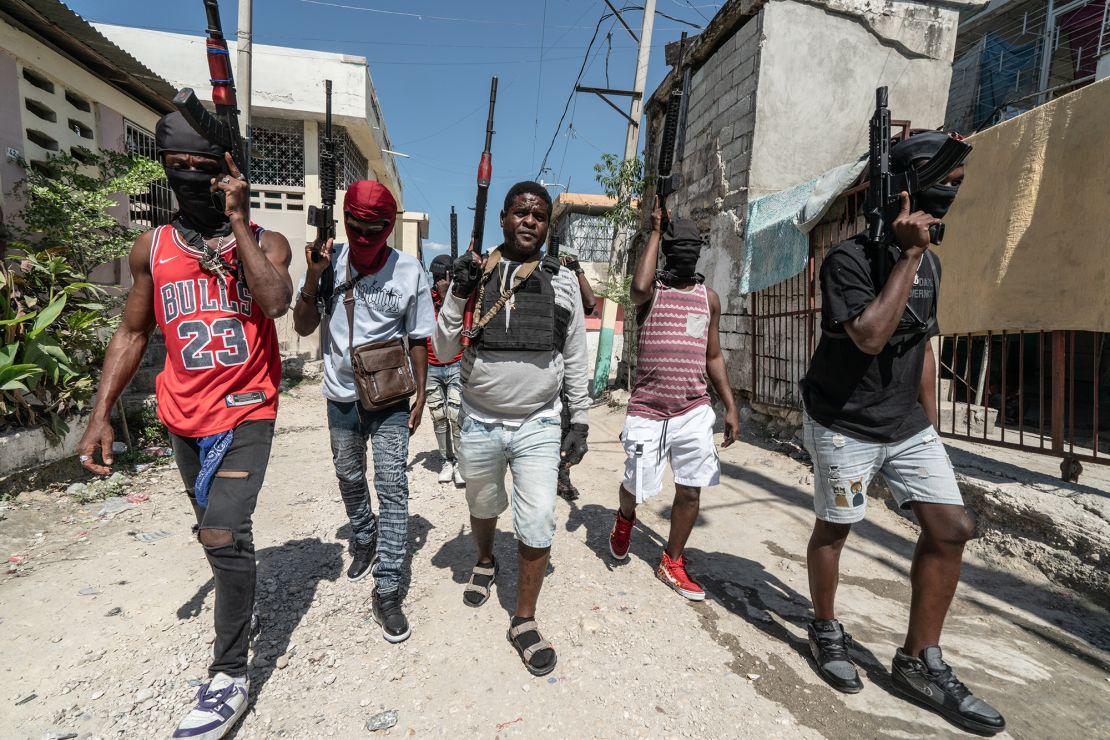
On May 2, the State Department announced “the designation of [Haitian paramilitary gangs] Viv Ansanm and Gran Grif (Big Claws) as Foreign Terrorist Organizations (FTOs) and Specially Designated Global Terrorists (SDGTs).”
Such legislation opens the door for the Trump administration and his colonial underling, the president of El Salvador, Nayib Bukele, to potentially imprison Haiti’s gang leaders, or more accurately warlords, in Bukele’s infamous CECOT, the Spanish acronym for “The Terrorism Confinement Center.”
Currently, 252 Venezuelans, kidnapped from the streets of the U.S. languish in the maximum security prison alongside tens of thousands of Salvadoran prisoners from working-class neighborhoods, many of whom never received due process. Trump and his cabinet of billionaires are again testing the waters to see if they can abduct foreign nationals and intern them in overseas gulags.
To understand the violent gang coalition, Viv Ansanm, occupying 85% of Port-au-Prince and expanding daily, it is imperative to understand Haiti’s place in the international political economy. To understand why these paramilitary groups are the recipients of hundreds of thousands of U.S. guns, it is necessary to understand a billion-dollar taboo that has long been at the center of elite Haitian politics—cocaine.
A Crown Jewel in the Global Drug Empire
In the summer of 2023, I co-authored an article with an anti-war marine veteran for the North American Council on Latin America (NACLA), documenting why and how Haiti is awash with hundreds of thousands of U.S. guns. As I continued to listen to the Haitian masses and research the impact of the paramilitary gangs on their lives, I realized there was another root cause that had not received sufficient attention—the cocaine trade. This article will address where the importation of massive cocaine shipments come from, where they are exported to and how they fuel the relentless violence against Haiti’s voiceless, poor majority.
The best estimates are that the global drug trade is worth $650 billion. For comparison, the global pharmaceutical industry is worth an estimated $1.5 trillion while oil’s global revenue is $4.5 billion. Illicit drugs are among the most profitable commodities in the West under late capitalism.
The United States is by far the biggest consumer of drugs in the world, with millions more addicts than its closest competitors, India and China. The UN’s Global Cocaine Report shows the cocaine loading zones in South America and the routes they take to the United States and Europe. Some 61% of the global cocaine supply emanates from Colombia. What does all this have to do with Haiti, a country that is smaller than Maryland, which has no history of cocaine or drug abuse in its culture?
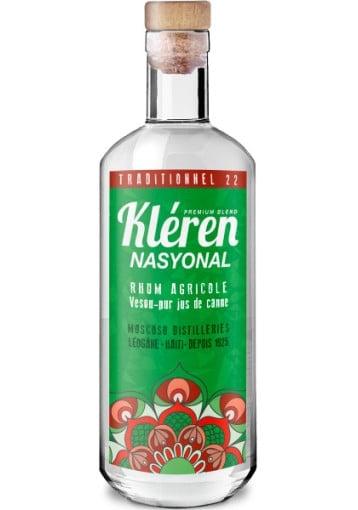
For the masses of Haitians seeking to survive the paramilitary war on the population, dirt-cheap kleren, or moonshine, is the local “drug of choice.” In the local ghettos, now crowded into schools and government offices which function as makeshift refugee camps, there are dozens of variations of fermented sugar cane, such as bwa kochon (pig wood), 2 zewo (2 zero) and yo ki pou pè (“the gangs should be afraid of us”). In the past decades, since the Duvalier dynasty, only the rich and powerful in the lush hills of Petion-Ville have had a culture of using the expensive party drug, spelled and pronounced kokayin in Kreyòl.
The forgotten Haitian people have other problems to deal with. In 2024, the paramilitaries, spearheaded by their charismatic spokesman, Jimmy “Barbecue” Chérizier, carried out 5,601 murders, 1,494 kidnappings and hundreds of thousands of displacements. This is merely the documented violence, as many crimes against the masses of excluded Haitians are ignored. In an important study entitled “Haiti’s Long Struggle: Military occupation, gang violence, and popular uprising,” Haitian scholars and activists Mamyrah Dougé-Prosper, Ernst Jean-Pierre, Georges Eddy Lucien and Sabine Lamour dialectically summarize the paramilitary campaign of violence that has defuturized the lives of millions. The international cocaine and marijuana trade provides key context to explain why Port-au-Prince is now the undisputed, most violent city in the world.
The 16-Year-Old President-for-Life and a Palace of Coke
Elizabeth Abbott spills the beans and shares a healthy dose of palace gossip in her 1988 “first inside account” of the dictator-for-life, Jean-Claude Duvalier, Haiti: The Duvaliers and Their Legacy. The Canadian journalist married Haitian hotelier Joseph Namphy making her the sister-in-law of Lieutenant General Henri Namphy, Duvalier’s Chief of the General Staff of the Army from 1984 to 1987, before becoming the 36th president of Haiti. Abbott recounts the role cocaine played during Jean-Claude and the Tonton Macoutes’ brutal rule from 1971 to 1986.
In this passage, she focuses on Duvalier’s father-in-law, Ernest Bennett:
“The Bennetts have been drug running since 1980, and with their associates had moved hundreds of millions of dollars’ worth of cocaine into the U.S.”
The “first lady,” the infamous Michèle Bennett Duvalier, the Imelda Marcos of the Caribbean, fueled by cocaine money went on global shopping sprees in Paris, London and New York. Her father launched the ambitious Haiti Air, the only national airline. It was a terrible economic enterprise, losing a reported $30,000 per day. What the Bennetts lost in inefficiency and incompetence, they recovered in full from the United States’ white lie.
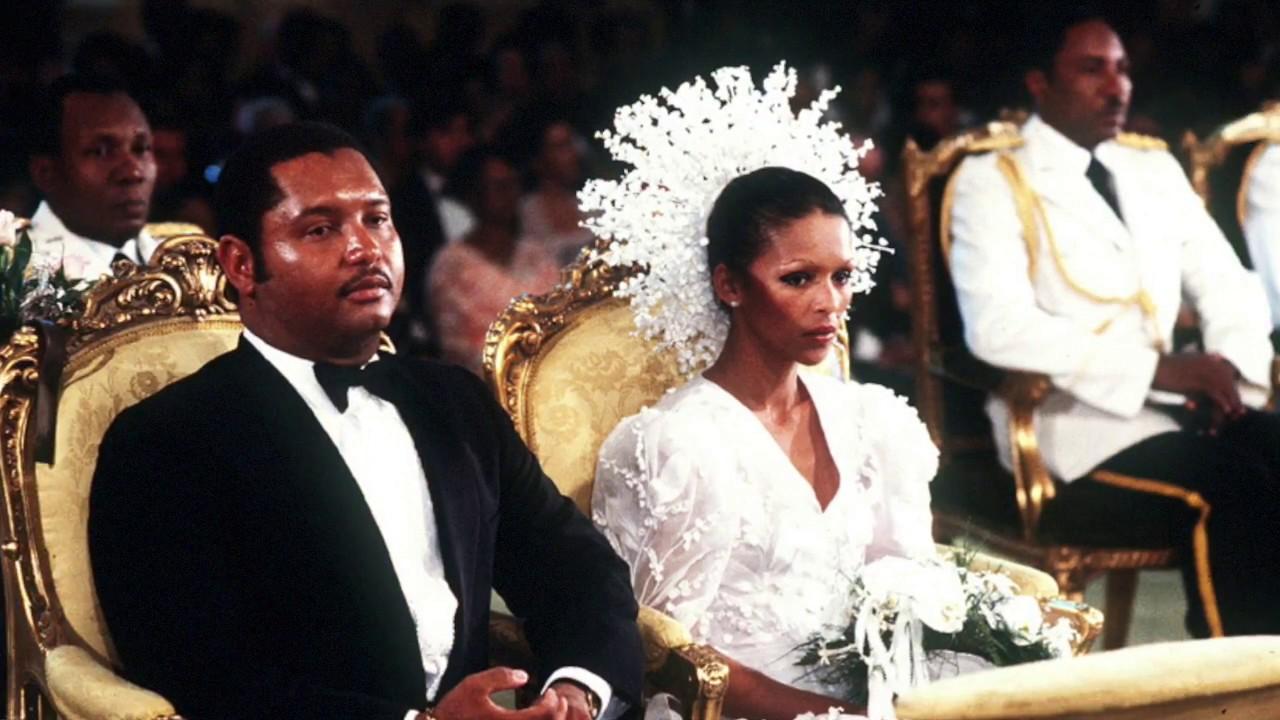
The fraudulent enterprise, Haiti Air, gave Bennett
“the opportunities to not only warehouse the drug for his Colombia partners, and to coordinate transshipments, but also to run it himself. He had huge quantities to sell, because as ‘the Godfather’ for four or five Colombian drug rings Bennett usually received payment in cocaine.”
After the 1986 popular upheaval which toppled the dictatorship,
“cocaine shipments were found at Duvalier’s wife, Michelle‘s Bon Repos Hospital, her vacation home in Fermathe, her father’s Lada-Neva car dealership, and even in the palace, along with hundreds of syringes and coke pipes.”
When the U.S. embassy protected Haiti’s most affluent couple and guided them to a gilded exile in Paris, at the last moment as they boarded their getaway flight and smuggled hundreds of thousands of dollars in paintings and jewelry with them.
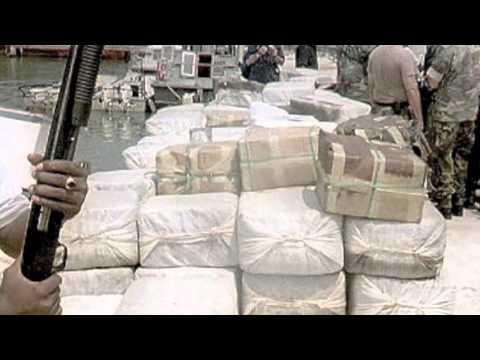
Two of the passengers abandoned to their fate amidst the 1986 revolution were Michèle’s elderly grandparents.
The acting president, Jean-Claude Duvalier, his family and his top business partners were paid agents of U.S. intelligence departments and South American narco-states. But who would care about an Iran-Contra style scandal in a country known to the West as a “shithouse”? The Misinformation War has for centuries paved the way for the immiseration of the nation of Dessalines, Cristophe and Peralte.
Travesty in Haiti
In 1995, University of Florida anthropology Ph.D. student Tim Schwartz arrived in the village of Jean Makout in the remote, far northwest of Haiti to conduct his field research on child rearing and marriage customs. This was the prerequisite so that Schwartz could work for foreign “aid” groups like CARE (Cooperative for Assistance and Relief Everywhere) on “farm, commerce and health projects.”
Like any outsider who goes to live in Haiti, the young Schwartz got more than he bargained for.
His highly engaging 2010 book, Travesty in Haiti: A True Account of Christian Missions, Orphanages, Food Aid, Fraud and Drug Trafficking, outlines his many adventures living in rural Haiti. His final chapter, “Colombia and the Drug Trade to the Rescue,” documents Haiti’s little-known role as a transshipment point for Colombian cocaine en route to the lucrative markets of the West.
The long-time student of all things Haiti recounts how out-of-place “Hispanic men” zoomed around Haitian hamlets and villages in dark-tinted SUVs, touting Israeli-made Uzis. Makeshift ports and airports were hastily constructed to facilitate the inter-hemispheric trade. Today, such “clandestine” airstrips and ports continue to dot the abandoned interior and porous coasts of a country that boasts of one functioning coast guard ship.
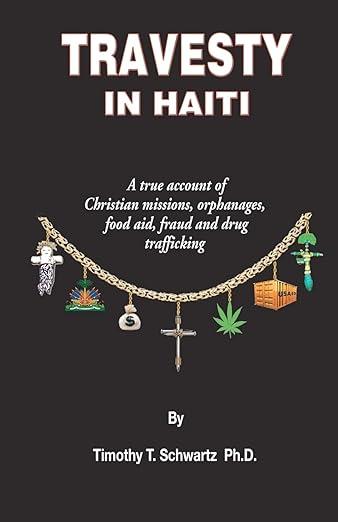
Schwartz tells the story of when the half-starved locals ambushed an airplane and seized “4,500 kilos of Colombian cocaine, a huge shipment worth at least $100 million on the streets of Miami or New York.” The long-exploited peasantry and fishing community was merely emulating the officials hours away in Port-au-Prince who thought of themselves first and the Haitian people never. It was only a matter of days before the police and other bureaucrats showed up beating up the locals, looking for their cut.
Overnight, thanks to millions of Western coke heads, the village of Jean Makout was catapulted out of the 19th century into modernity, with luxury imports, SUVs and visas. Drunk off their rags-to-riches good fortune, certain friends and inhabitants of the small town invited Schwartz himself to cash in on the collective good fortune. The traumatized visitor continues:
“My faith in development had been destroyed. I no longer had any will to be an anthropologist, and I planned to leave Haiti soon. I lingered in the Hamlet for a while, watching as people I had known for years, pastors, businessmen, police, school, teachers, people I had never suspected could be involved in drugs, came and bought kilos of cocaine.”
Schwartz’s final chapter of his ethnographic observations are straight out of the theater of the absurd. The long-time Haiti resident and expert would not be the first or last foreigner to appear defeated as he shared his final cynical conclusion:
“I think about the greatest irony of all: how the people of the Hamlet and the village, many of whom really are the poorest of the poor, had done more in one day to better their lives than the Haitian government and all the foreign NGOs had accomplished during half a century… by hijacking a cocaine shipment.”
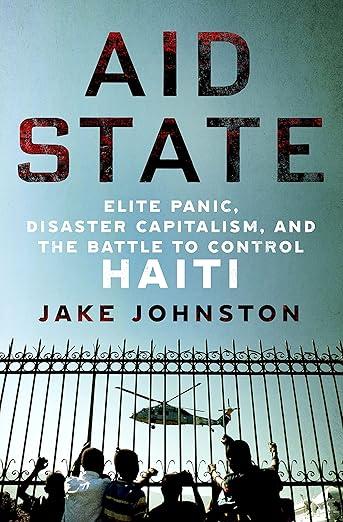
The Legal Bandits
The former superstar konpa (Haiti’s upbeat dance music) musician turned president Michel Martelly bragged in 2008 about the “legal bandits” running Haiti. In his 2024 book, Aid State: Elite Panic, Disaster Capitalism, and the Battle to Control Haiti, Jake Johnston dedicates Chapter 19 to the “Legal Bandits,“ tracing the thread of cocaine through Haitian politics.
His book documents how kingpin Fernando Burgos-Martinez was Pablo Escobar and the Medellin cartel’s main man in Haiti. The magnate ran the upscale Petionville El Rancho Hotel, trafficking drugs and laundering money to the tune of tens of millions of dollars per week.
He worked closely with the head of police, Michel François, a close friend of future President Martelly. The September 1991 power grab by the corrupt generals, kleptocrats and U.S. intelligence against the democratically elected Jean-Bertrand Aristide was in fact dubbed the “cocaine coup” by many.
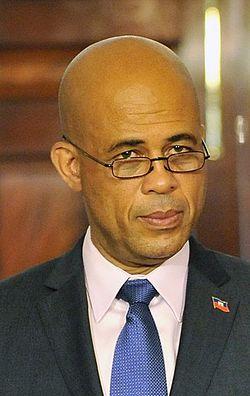
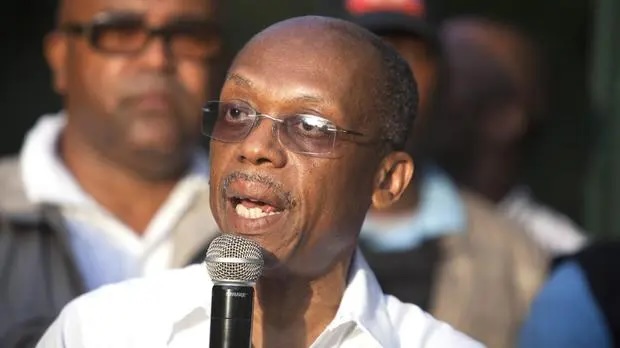
The U.S.-sponsored agent and berserker, Guy Philippe, who led the second 2004 paramilitary coup against Aristide, served nine years in U.S. federal prison for drug smuggling and money laundering. Philippe claims the U.S. came for him despite his loyalty because he was about to name names. Surrounded by his own paramilitary unit, Philippe is back in Haiti a generation later up to his old tricks and loyal to the same master.

In Aid State, Johnston goes on to document case after case of Martelly associates, DEA informants and wealthy Haitian-American businessmen caught with massive shipments of cocaine. No matter how big the bust or how famous the criminal, “Cocaine business controls America, Illegal business controls America,” as KRS-One and Boogie Down Productions rapped in their 1988 hit song “Illegal Business.”
Speaking on the condition of anonymity, a community leader from a downtown Port-au-Prince community ransacked by Viv Ansanm (Living Together, as in the gangs will no longer fight one another but unite), explained the Haitian point of view. Makenson, one of the more than one million Haitians displaced by the death squads, told me:
“The DEA, the CIA and the real power brokers cannot always get their funding approved legally. They have long taken matters into their own hands, illegally financing their underground operations, power grabs and coups through the drug and arms trade. This has long been obvious to the Haitian people. We do not produce these things here in Haiti or in our neighbor’s country, the Dominican Republic. If we investigate too closely and speak out, we too will disappear. Many know about the U.S.’s open imperial domination but there is a clandestine component as well.”
Shutting Down the Whistleblowers
Former Drug Enforcement Agency (DEA) agent Keith McNichols sought to expose the agency’s corruption in Haiti in 2015. For being a whistleblower, McNichols was forced out of the country and out of his job.
His lawyer, Tom Devine, expounded upon the DEA’s bureaucracy of corruption:
“The agency circles the wagon to shield and avoid public knowledge of corrupt pockets. There’s a very well-established buddy system between those on the front lines and DEA’s internal accountability offices, as well as the regional and federal management.”
Currently, McNichols and Devine are working with the Government Accountability Project, attempting to pressure the stonewalling agency to be transparent. Even members of Congress have agreed with them and been vocal about the DEA’s lack of accountability.
The Miami Herald has published extensively on how Haiti’s “Southern departments have become critical entry points for cocaine from South America, and cannabis from the Caribbean, with Haiti being a transit hub for both.” A month before the 2024 elections President Joe Biden’s White House identified Haiti “in a list of 23 countries designated as major drug transit or major illicit drug producing countries.”
The Biden administration then proceeded to shut down its DEA operations in Haiti and in 13 other countries. This is occurring as the DEA is on its way to receiving “another record budget—$3.7 billion for fiscal year 2025—to continue and expand its ‘war on drugs.’” Is this the reason the silenced masses of Haiti have been saying for decades that guns and drugs have never been native Haitian problems, but rather form part of “yon pwojè lamò” (a death project), parachuted down on them by powerful international forces.
An extensive report by the Center for Economic and Policy Research provides clear proof of the deep connections between the DEA, confidential informants, the 18 Colombian assassins of President Jovenel Moise, U.S. intelligence and a Florida-based private security firm. The New York Times writes that Jovenel Moise was assassinated in 2021 because
“He had been working on a list of powerful politicians and business people involved in Haiti’s drug trade, with the intention of handing over the dossier to the American government, according to four senior Haitian advisers and officials tasked with drafting the document.”
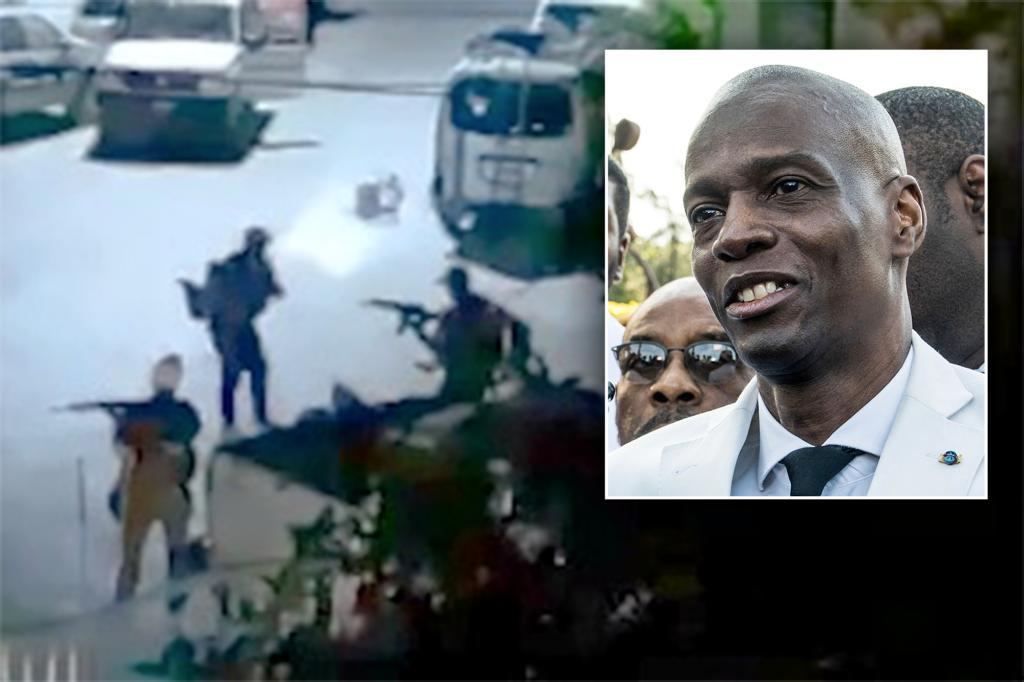
The corporate mouthpieces themselves like the Times offer tidbits of the truth, but do not question beyond this, never mind take any actions to halt the brutal violence gripping the Haitian capital. As the Palestinians remind us, imperialism’s think tanks, publishers and bureaucracies will document the massacres and carnage, but never challenge the underlying causes of the genocide.
While many Americans would quickly dismiss this incontrovertible proof of high-level cocaine-trafficking collusion as the ultimate plot for a fictitious CIA Hollywood film, this is everyday Haitian reality.
Barbecue and the other warlords confederated their paramilitary gangs into one coordinated alliance, called Viv Ansamn, or “Living Together,” on February 29th, 2024 in order to coordinate their big business. Haitians are quick to point out that there are forces high above the warlords in the hills of the bourgeois paradise of Petyonvil (Petionville) and Washington who are their puppet masters. While there is nothing Haitian about cocaine, the prized powder funds the wanton destruction and occupation of the once-famed tourist destination, Port-au-Prince. While there is nothing Haitian about armed criminal groups, today’s Viv Ansanm, functioning directly and indirectly as shock troops for U.S. foreign policy, has usurped the destiny of the only country to overthrow slavery and organize an anti-colonial revolution.
White Lies, Haitian Death
For decades, Haiti has functioned as a lawless free-for-all playground, where billions of dollars in cocaine profits line the pockets of a chosen few. The “War on Drugs” has long been a War on Haiti, a War on Mexico and a War on Poor People the world over. The murders of thousands and displacement of hundreds of thousands by the gang alliance keep the cocaine and enormous profits flowing.
Colombian President Gustavo Petro has denounced the role criminal networks from his country have played in the increased insecurity in Haiti. In April 20024, he announced the disappearance of 1,000,000 guns, munitions and explosives from the Colombian military, many of which were suspected of making their way to Haiti alongside cocaine shipments. His colleague, Venezuelan President Nicolás Maduro, has made similar declarations, accusing the U.S. of “beheading Haiti” by facilitating the guns and arms trade.
Today, the gang paramilitè yo (paramilitary gangs) and their chef bandi (war lords) are Duvalier and the Haitian generals’ heirs. Andre Johnson alias “Izo,” the warlord of the coastal Vilaj dè Dye, openly brags about his drug cartel. The youthful drug kingpin and gangster rapper explained why Viv Ansamn confederated all of the criminal networks and attacked Sodo (Saut-d’Eau), because one of their biggest drug shipments went missing when another local gang intercepted it. Lamò san jou (Death without a date) is based out of Kwadebouke (Croix des Bouquets) and controls key routes to and from the Dominican border. Wa Mikanò (“King” Micanord Altès) runs the boat traffic importing and exporting from Wharf Jérémie, a neighborhood in the largest slum in the Western hemisphere, Cité-Soleil. Mikanò is wanted for the recent slaughter of more than 184 mostly elderly inhabitants of the neighborhood.
When the Viv Ansanm death squad alliance had to smuggle one of their foreign collaborators out of Haiti, they called upon contacts close to Dominican president Luis Abinader to fly him back to the U.S. in Abinader’s personal jet. Researcher Jeb Sprague’s book, Paramilitarism and the Assault on Democracy in Haiti, shows the role the Dominican state has long played in destabilizing its neighbor. The Dominican-Haitian border is closed to neighbors in need but always open for the U.S. guns and South American cocaine that keeps Haiti trapped in a colonial death grip, not as the poorest, but as the most exploited and plundered country in the Western Hemisphere.

All of the well-paid professionals mentioned above work as captains of Jimmy “Barbecue” Chérizier’s Viv Ansanm paramilitary alliance. The public face of the armed groups, Chérizier, spends hours on social media and in television interviews. He is all smiles as he brags about being “Haiti’s new Jean Jacques Dessalines.” For the past four years, Chérizier has teamed up with local and foreign journalists, sadistically whitewashing reality and insisting, despite over 1,000,000 Haitians being displaced, that this is all part of his “revolution.” While a Hollywood manipulation of reality confuses foreigners on X and YouTube in a language alien to Haiti, Haitian community leaders continue to fearlessly tell their collective truth.
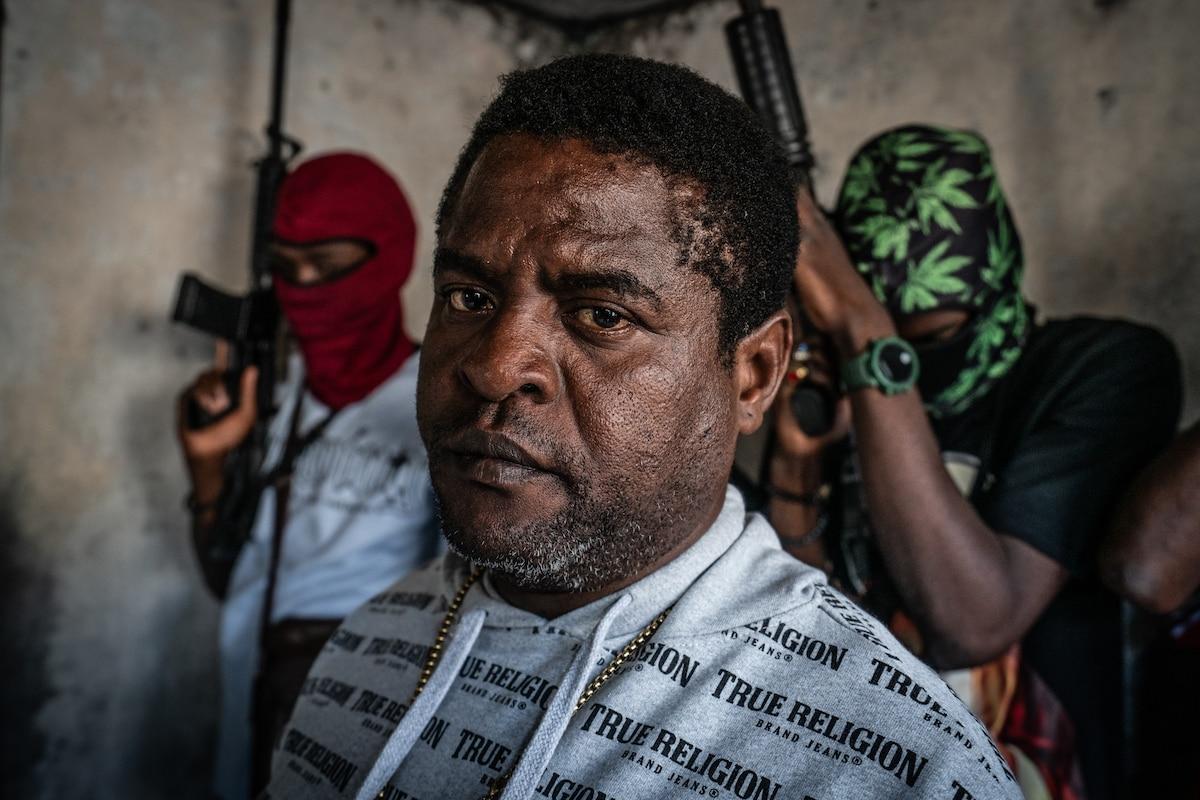
The locals I lived alongside scoffed at Chérizier’s claims. Neighbors in the now fallen Solino explained Chérizier and the death squads’ role: a bandi (gang member) is the most effective enforcer of the oligarchs. Unlike the military, he has no uniform. Unlike the police, he has no face. He enjoys complete immunity. He can massacre at will. Such formulations are common wisdom among the Haitian masses and their intellectual representatives.
The consensus across the popular sectors of Haiti for anyone who is listening to their gritty Kreyòl is: The terrorist, drug-dealing gangs are a planned and organized project of imperialism. They have long sought to break the backs of our revolutionary resistance. Paramilitary agents of this death project carry U.S. weapons and traffic Colombian cocaine and Jamaican marijuana to the West. We are the victims of the ongoing war on Haiti. This is word for word what the author has heard since the February 7th, 2021 uprising from Haitian community groups and the strong voudou cultural world.
Trapped Between Two Occupations
How telling that the masses themselves use the word tewowis (terrorists) to describe Barbecue, Vitalom, Lamo San Jou and their paid soldiers. No one knows the political geography of the gangs like the people who wage a daily war to survive under their tyrannical rule.
Viv Ansanm terrorists do not allow any community organizations to exist. Feminist and community leader Astride Noël explains in “How the Gangs Cause Mass Cultural & Social Chaos: “they blame U.S. imperialism both for the arming of the paramilitary death squads and for the Kenyan, Salvadoran and other multinational mercenaries sent to invade and occupy Haiti for a fourth time in 100 years.
The Haitian people insist it is their historical responsibility to deal with their rapists, kidnappers and murderers, not the very empire who keeps them on a short leash. Ezai Jules, one of the many revolutionary leaders who has seen his father murdered and neighborhood burned to a crisp, asked rhetorically: “If this was a revolution, do you really think Washington and Santo Domingo (the Dominican government) would allow the free flow of guns to Chérizier? The gangs exist to empty out and occupy the historic neighborhoods that have given imperialism so many headaches.”
Ezai notes further that “the fact that there are foreigners masquerading as ‘leftists’ who cheer the death squads on shows us Haitians that colonialism can come from the left as well.”
The Haitians masses know that killing or imprisoning Barbecue and the other drug dealers for hire in Bukele’s Terrorism Confinement Center is no long-term solution. How can those responsible for the disease—the ongoing colonization of Haiti—again claim to have the cure?
They see Barbecue as a symptom of U.S. Full Spectrum Dominance, not as the root problem. Their analysis is that U.S. imperialism controls Fritz Alphonse Jean, the latest president of Haiti’s Transitional Presidential Council, the paramilitary alliance and the 1,000 plus foreign troops, mostly from Kenya, deputized by the U.S. to invade their homeland. Secretary of State, Marco Rubio, and the Trump administration are now moving to send more troops from the Organization of American States (OAS) to further occupy Haiti. Who will be trapped in the middle of these two criminal entities, both armed and controlled by imperialism?
Haitians don’t want more U.S. intervention, which has resulted in the loss of their capital city. Everyday the Palestinians of the Caribbean organize, fight and die for a future free of foreign and gang domination and a Haiti free of foreign guns and drugs. When will we listen to the voices of the voiceless, translate the untranslatable and heed the centuries-long hopes of the hopeless?

CovertAction Magazine is made possible by subscriptions, orders and donations from readers like you.
Blow the Whistle on U.S. Imperialism
Click the whistle and donate
When you donate to CovertAction Magazine, you are supporting investigative journalism. Your contributions go directly to supporting the development, production, editing, and dissemination of the Magazine.
CovertAction Magazine does not receive corporate or government sponsorship. Yet, we hold a steadfast commitment to providing compensation for writers, editorial and technical support. Your support helps facilitate this compensation as well as increase the caliber of this work.
Please make a donation by clicking on the donate logo above and enter the amount and your credit or debit card information.
CovertAction Institute, Inc. (CAI) is a 501(c)(3) non-profit organization and your gift is tax-deductible for federal income purposes. CAI’s tax-exempt ID number is 87-2461683.
We sincerely thank you for your support.
Disclaimer: The contents of this article are the sole responsibility of the author(s). CovertAction Institute, Inc. (CAI), including its Board of Directors (BD), Editorial Board (EB), Advisory Board (AB), staff, volunteers and its projects (including CovertAction Magazine) are not responsible for any inaccurate or incorrect statement in this article. This article also does not necessarily represent the views the BD, the EB, the AB, staff, volunteers, or any members of its projects.
Differing viewpoints: CAM publishes articles with differing viewpoints in an effort to nurture vibrant debate and thoughtful critical analysis. Feel free to comment on the articles in the comment section and/or send your letters to the Editors, which we will publish in the Letters column.
Copyrighted Material: This web site may contain copyrighted material the use of which has not always been specifically authorized by the copyright owner. As a not-for-profit charitable organization incorporated in the State of New York, we are making such material available in an effort to advance the understanding of humanity’s problems and hopefully to help find solutions for those problems. We believe this constitutes a ‘fair use’ of any such copyrighted material as provided for in section 107 of the US Copyright Law. You can read more about ‘fair use’ and US Copyright Law at the Legal Information Institute of Cornell Law School.
Republishing: CovertAction Magazine (CAM) grants permission to cross-post CAM articles on not-for-profit community internet sites as long as the source is acknowledged together with a hyperlink to the original CovertAction Magazine article. Also, kindly let us know at info@CovertActionMagazine.com. For publication of CAM articles in print or other forms including commercial internet sites, contact: info@CovertActionMagazine.com.
By using this site, you agree to these terms above.
About the Author

Danny Shaw was a professor for 18 years at John Jay College of Criminal Justice who was fired for speaking out against the genocide in Palestine.
Danny holds a Masters in International Affairs from the School of International and Public Affairs at Columbia University. He is fluent in Spanish, Haitian Kreyol, Portuguese, Cape Verdean Kreolu and has a fair command of French, and works as an International Affairs Analyst for TeleSUR, HispanTV and other international news networks.
As an ethnographer, Danny has been traveling to Haiti since 1998 and has published dozens of articles on Haitian popular movements and U.S. foreign policy towards Haiti.
You can follow his work at profdannyshaw.com.

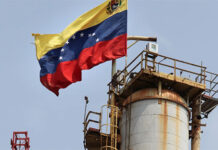
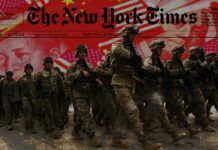

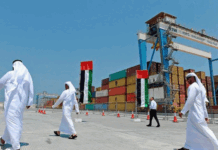
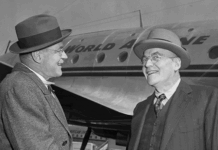
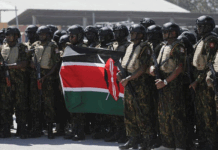
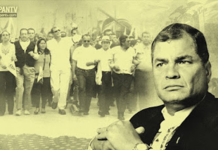
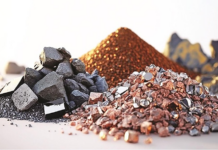


Danny Shaw has publicly stated in several media a
I used to listen to Danny Shaw’s opinion on Haiti, but he’s shown himself to be a liar and even a potential federal agent sowing propaganda about Jimmy Cherizier.
Read Kim Ives if you want a real anti-imperialist expert opinion.
you online people need to get a life.
Danny Shaw was caught fabricating allegations that I, Kim Ives, Haz Al-Din and Kyle Pettis plotted to traffic weapons to Haiti.
He admitted in a recorded that he “was not 100 percent truthful.” and sought to destroy us.
https://x.com/dancohen3000/status/1883275336022151452
His writings should be understood to be laced with CIA interventionist propaganda.
Danny Shaw is rat,speak to him as you would a federal agent